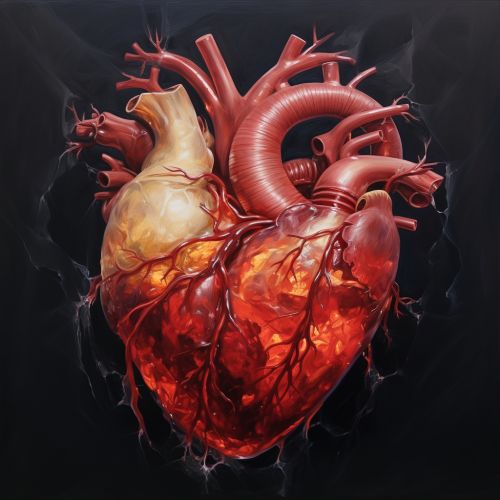Cardiomyopathy
Overview
Cardiomyopathy refers to diseases of the heart muscle. These diseases have many causes, symptoms, and treatments. In cardiomyopathy, the heart muscle becomes enlarged, thick, or rigid. In rare cases, the muscle tissue in the heart is replaced with scar tissue. As cardiomyopathy worsens, the heart becomes weaker. It's less able to pump blood through the body and maintain a normal electrical rhythm. This can lead to heart failure or irregular heartbeats called arrhythmias. In turn, heart failure can cause fluid to build up in the lungs, ankles, feet, legs, or abdomen. The weakening of the heart also can cause other complications, such as heart valve problems.


Types of Cardiomyopathy
There are several types of cardiomyopathy, including dilated, hypertrophic, and restrictive cardiomyopathies.
Dilated Cardiomyopathy
Dilated cardiomyopathy (DCM) is the most common type. It mostly occurs in adults aged 20 to 60. Men are more likely than women to have this type of cardiomyopathy. DCM affects the heart's ventricles and atria. These are the lower and upper chambers of the heart, respectively.
Hypertrophic Cardiomyopathy
Hypertrophic cardiomyopathy (HCM) is very common and can affect people of any age. About 1 out of every 500 people has HCM. It's thought to be caused by mutations in the genes that make up the heart muscle. HCM can affect the heart's septum, which divides the left and right sides of the heart.
Restrictive Cardiomyopathy
Restrictive cardiomyopathy (RCM) is the least common type of cardiomyopathy in the United States. It's more common in older people. RCM mostly affects the heart's ventricles.
Causes
Cardiomyopathy can be acquired or inherited. "Acquired" means you weren't born with the disease, but you developed it due to another disease, condition, or factor. "Inherited" means your parents passed the gene for the disease on to you. Many times, the cause of cardiomyopathy isn't known. Cardiomyopathy can be a result of other conditions (acquired) or passed on from a parent (inherited). It can also be related to certain lifestyle factors such as long-term alcohol misuse.
Symptoms
In the early stages of cardiomyopathy, you might have no symptoms. As the condition advances, symptoms often get worse. Symptoms of cardiomyopathy can include fatigue, swelling of the ankles, feet, and legs, shortness of breath, lightheadedness, and irregular heartbeats.
Diagnosis
Cardiomyopathy is diagnosed based on medical history, physical exam, and diagnostic test results. If your doctor thinks you have cardiomyopathy, he or she may refer you to a cardiologist. A cardiologist is a doctor who specializes in diagnosing and treating heart diseases and conditions.
Treatment
Treatment for cardiomyopathy can involve medications, surgically implanted devices, non-surgical procedures, and surgery. In severe cases, a heart transplant may be an option.
